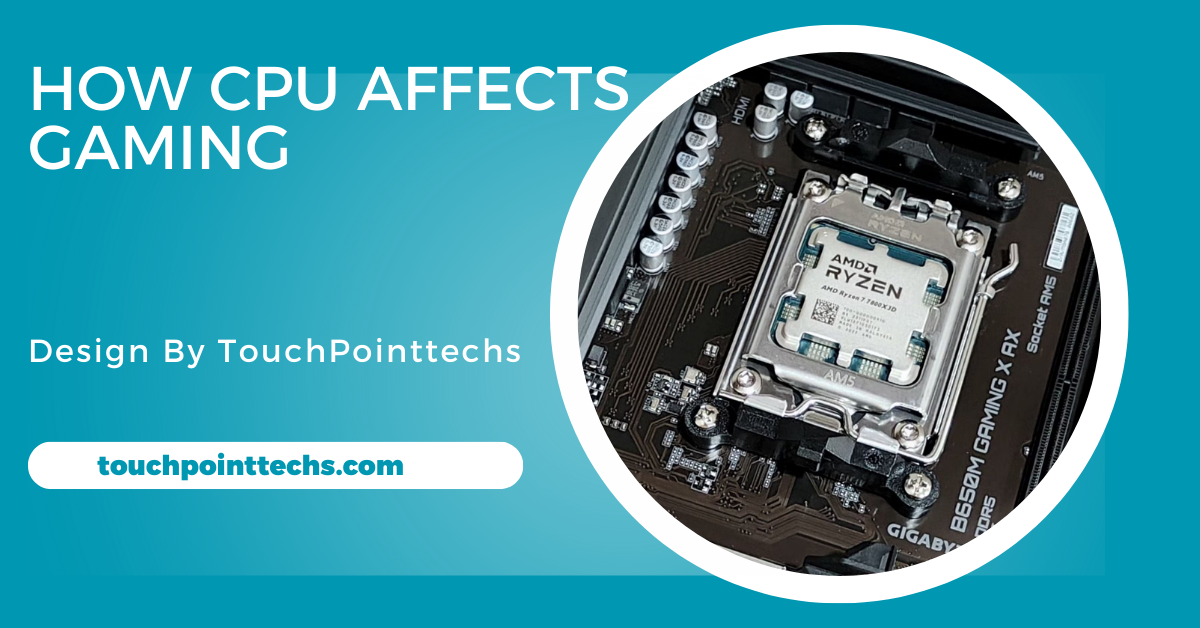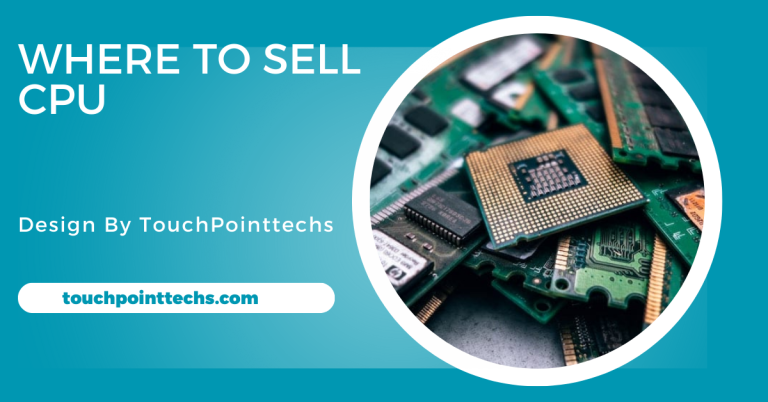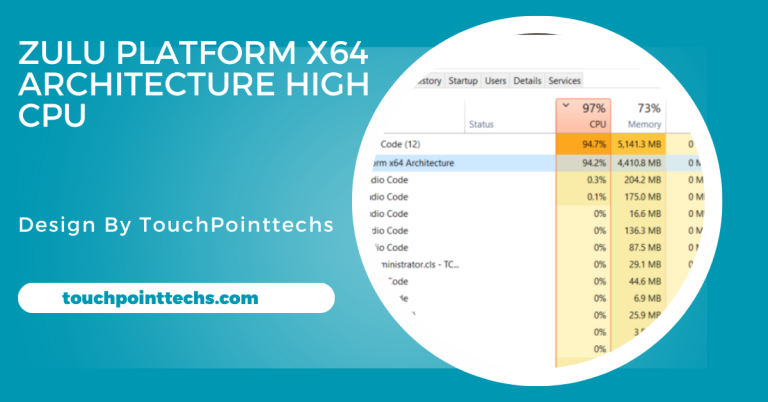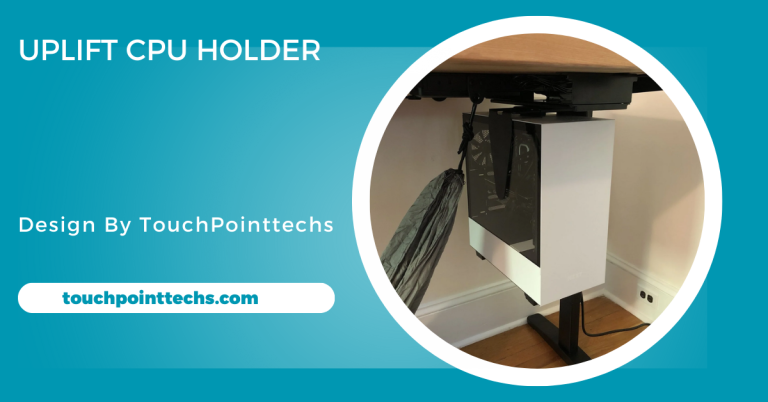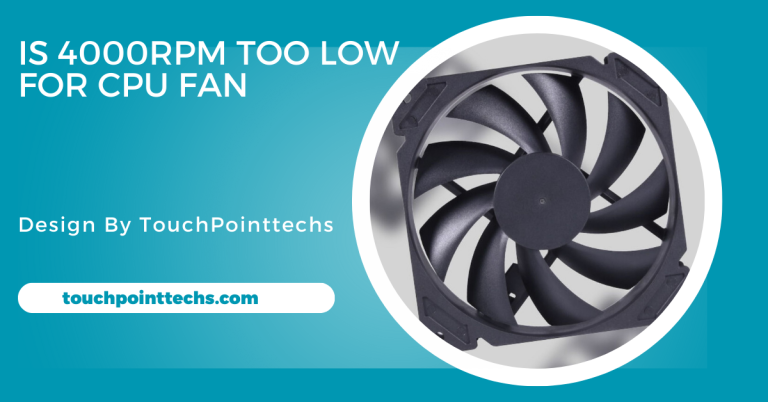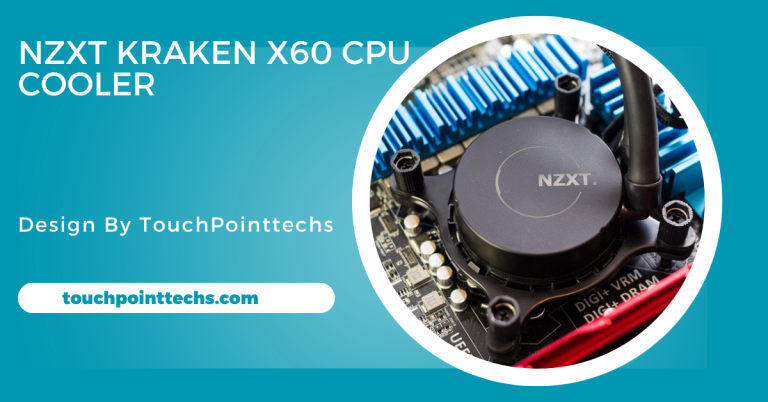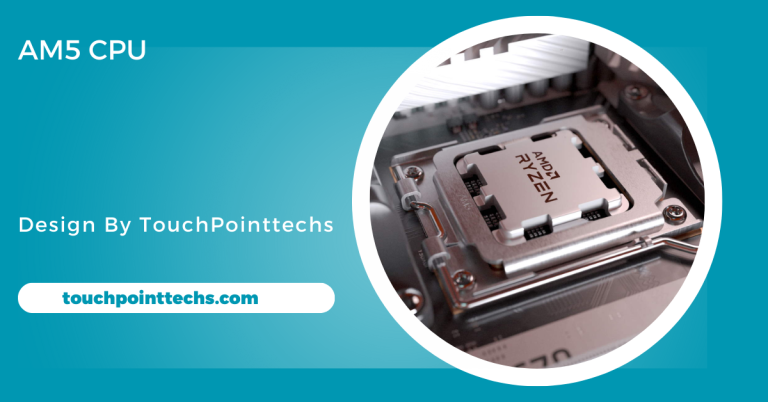How Cpu Affects Gaming – How To Choose For Better Gaming!
The CPU significantly impacts gaming performance by managing calculations, loading times, and AI processes, ensuring smoother gameplay and faster responses for an enhanced experience.
This article will explain how the CPU affects gaming, what factors matter the most, and how to choose the right CPU for your gaming needs.
Table of Contents
What Is a CPU and Why It Matters in Gaming:
What Does a CPU Do?
The CPU, or “processor,” performs crucial calculations that power gaming. It handles loading data, executing commands, managing game physics, controlling AI, and overseeing background processes. A strong CPU ensures games run smoothly by minimizing lag and interruptions, enhancing the overall gaming experience with faster and more responsive performance.
Why Does the CPU Matter for Gamers?
For gamers, the CPU’s performance is key to how efficiently data is processed. A slow CPU may cause lag, stuttering, or slow loading. A powerful CPU delivers better gameplay, faster responses, enhanced visuals, and a smoother experience, especially in complex or resource-intensive games that demand rapid processing and real-time calculations.
How Does the CPU Affect Gaming Performance?
Frame Rates (FPS):
The CPU affects the Frame Rate Per Second (FPS) of a game. FPS measures how many frames your game shows every second. A higher FPS means smoother gameplay. A strong CPU can handle more frames and increase the FPS, especially in games with complex scenes or lots of enemies.
How FPS Is Affected by the CPU:
- Higher CPU Clock Speed: A faster CPU can process more instructions per second, leading to a higher FPS.
- More CPU Cores: Modern games benefit from multiple CPU cores, allowing the game to spread the workload across more processing units. More cores mean better performance in multi-tasking or open-world games.
Game Loading Times:
A powerful CPU can speed up game loading times. When you start a game, the CPU helps load game assets like textures, models, and other data. A faster CPU can load these elements quickly, allowing you to start playing without long waiting times.
AI and Game Physics:
The CPU handles the game’s AI (Artificial Intelligence) and physics calculations. AI includes how non-player characters (NPCs) react, while game physics deals with the movement of objects and characters. A powerful CPU can handle complex AI and physics, making the game feel more realistic and responsive.
Factors That Determine a Good Gaming CPU:
Clock Speed:
Clock speed, measured in GHz (Gigahertz), indicates how fast the CPU can process instructions. A higher clock speed usually means a faster CPU, which can improve gaming performance. Look for CPUs with at least 3.5 GHz or higher for a good gaming experience.
Number of Cores and Threads:
Modern CPUs come with multiple cores and threads:
- Cores: These are like mini-processors within the CPU. More cores allow the CPU to handle multiple tasks simultaneously.
- Threads: Threads are virtual cores that split the workload. More threads mean better multitasking. For gaming, a CPU with 6 to 8 cores and 12 to 16 threads is ideal.
Cache Size:
Cache is a small amount of fast memory in the CPU that stores frequently used data. A larger cache can speed up data access, making the game run more smoothly. CPUs with larger caches are better for gaming, especially in open-world games with lots of data.
Cooling System:
A good cooling system helps maintain the CPU’s temperature. When the CPU gets too hot, it can slow down to prevent damage. This is called “thermal throttling,” and it can affect gaming performance. Make sure your CPU has an adequate cooling solution like air cooling or liquid cooling.
How to Choose the Right CPU for Gaming:
Decide on Your Budget:
Your budget will determine the type of CPU you can buy. High-end CPUs are more expensive but provide the best performance. Mid-range CPUs offer good performance at a lower price, while budget CPUs are affordable but may not handle the latest games at the highest settings.
Match the CPU to Your Graphics Card:
The CPU and GPU (Graphics Processing Unit) need to work together for the best gaming performance. If you have a powerful GPU, pairing it with a weak CPU can cause a “bottleneck,” limiting the performance. Choose a CPU that matches your GPU’s power to avoid slowdowns.
Consider the Games You Play:
Different games have different CPU needs:
- High CPU Demand Games: Strategy games, simulation games, and open-world games require a powerful CPU because of complex AI and calculations.
- Low CPU Demand Games: Shooters or arcade games may rely more on the GPU, so a mid-range CPU is sufficient.
Future-Proofing Your CPU:
When buying a CPU, think about future needs. Newer games will demand more processing power. Investing in a good CPU now can help you avoid upgrading for several years, saving you money in the long run.
Tips to Improve Gaming Performance with Your CPU:
Keep Your CPU Cool:
Keeping your CPU cool is crucial for optimal gaming performance. High temperatures can lead to throttling, where the CPU slows down to prevent overheating. To avoid this, regularly clean your computer to remove dust from fans and vents. Consider upgrading to a better cooling system, like liquid cooling or additional fans, to maintain lower temperatures.
Update Your Drivers:
Driver updates are essential for maximizing CPU efficiency. Manufacturers frequently release updates that fix bugs, enhance stability, and improve how the CPU handles complex games. By keeping your drivers up-to-date, you ensure that your hardware runs smoothly with the latest game versions, minimizing crashes and improving frame rates.
Overclocking Your CPU:
Overclocking is the process of increasing your CPU’s clock speed beyond the manufacturer’s settings. This can significantly boost gaming performance, especially for CPU-intensive games, leading to higher FPS and smoother gameplay. However, overclocking requires better cooling solutions to manage the additional heat and may reduce the CPU’s lifespan if done improperly.
Close Background Applications:
Background applications can consume valuable CPU resources, slowing down your gaming performance. Before launching a game, close unnecessary software like browsers, chat apps, or update managers. This frees up processing power for the game, resulting in faster load times, better FPS, and a more fluid gaming experience, especially in demanding games.
Key CPU Features That Impact Gaming:
Clock Speed (GHz):
Clock speed, measured in GHz (gigahertz), indicates how many cycles a CPU can execute per second. A higher clock speed means faster processing, which directly enhances gaming performance, especially in single-threaded tasks. Games that rely heavily on quick calculations benefit significantly from a CPU with a high clock speed, resulting in smoother gameplay and improved frame rates.
Core Count and Threads:
Modern CPUs feature multiple cores and threads, allowing them to handle more tasks simultaneously. A core is a single processing unit, while threads enable multiple operations per core. Most games benefit from a higher core count, particularly those designed for multi-threading. A CPU with more cores enhances multitasking and overall performance, providing a smoother gaming experience during complex scenarios.
Cache Size:
The CPU cache is a small, high-speed memory located within the CPU that temporarily stores frequently accessed data. A larger cache allows the CPU to retrieve data quickly, reducing wait times and improving overall game performance. Efficient cache management ensures that critical information is readily available, enhancing the speed and responsiveness of games, particularly those with large assets.
Overclocking Capability:
Overclocking refers to the practice of running a CPU beyond its standard factory settings to achieve better performance. Not all CPUs support overclocking, so it’s essential to check compatibility. Successfully overclocking can lead to noticeable frame rate increases and improved performance in demanding games. However, it requires adequate cooling solutions to prevent overheating and maintain system stability during intensive tasks.
FAQ’s
1. What is the role of a CPU in gaming?
The CPU processes game data, manages physics, controls AI, and oversees background tasks, ensuring smooth gameplay and quick responses.
2. How does the CPU affect frame rates?
A strong CPU increases the Frame Rate Per Second (FPS) by processing more instructions faster, leading to smoother gameplay.
3. Why are clock speed and core count important for gaming?
Higher clock speeds allow faster processing, while more cores help handle multiple tasks, improving overall performance in demanding games.
4. Can I improve my CPU’s gaming performance?
Yes, by keeping it cool, updating drivers, overclocking, and closing background applications to free up resources.
5. How do I choose the right CPU for gaming?
Consider your budget, match it to your GPU, think about the types of games you play, and invest in a CPU that will be future-proof for upcoming games.
Conclusion
In conclusion, the CPU plays a vital role in gaming performance by managing calculations, loading times, and AI processes. A powerful CPU enhances frame rates and reduces lag, leading to a smoother gaming experience. Choosing the right CPU based on clock speed, core count, and future needs is essential for optimal gaming enjoyment.

